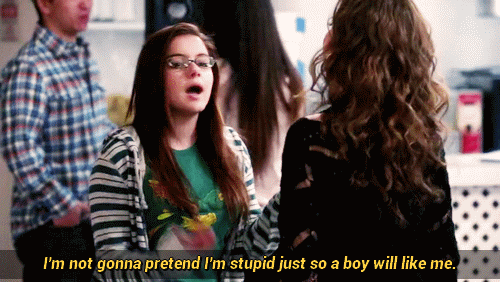How Pandemic Intensified Smart-Shaming in the STEM Field
Do you ever notice how people always pick on those who think outside the box?
Probably once or twice, we’ve encountered or engaged in social media conversations where a supposed casual exchange of facts and opinions suddenly turned into personal attacks. In this age of digital misinformation, it’s difficult to correct fake news without getting persecuted online. Sometimes, it’s even more difficult to engage in these kinds of conversations with our relatives and friends as it may lead to smart-shaming and being branded as disrespectful or overbearing, even when we’re just trying to explain based on the facts and research.
Along with the common misconceptions that our society associates with students or professionals in the STEM field, there is a lingering stereotype that all STEM students are smart. Although this can be taken positively, it often connotes a negative tone, especially when it brings out one of the toxic traits in our society — smart-shaming. While it is true that extensive knowledge and skills are needed to pursue a career in science and mathematics, why do other people feel the need to call them out for simply sharing what they know?
What is smart-shaming?

“Edi ikaw na matalino!”
“Wow English, nosebleed ako do’n ah!”
“Siguro napaka-perfect mo ‘no?”
“Edi wow!”
Sounds familiar? Maybe because these statements have probably been thrown in your direction. And it’s got a name: Smart-shaming a.k.a. anti-intellectualism. So, what is smart-shaming? Smart-shaming is generally defined as the act of mocking or opposing the development of ideas in an intellectual conversation and expressing hostility and mistrust to intellectual pursuits.
You might be thinking: Everyone can be subjected to smart-shaming. There are all sorts of situations of smart-shaming in the Philippines. So, why do we spotlight its prevalence in STEM? One word. C-O-V-I-D.
How has the pandemic intensified smart-shaming?

Never in our lives have we imagined that a pandemic could transpire in OUR lifetimes. But to our dismay, it did; and just like any other disease, there’s no other way to deal with it than with science.
Each one of us — STEM student or not — started from knowing nothing about this disease to continuously discovering what it is, how it is transmitted, and how it can be prevented with the help of scientific tests, experiments, and research done by professionals. We are presented with accurate data to support these reports and aid in the pandemic response worldwide. So, how come there are still people who refuse to listen to health professionals and experts when it comes to combating this virus? How does this tie into people who smart-shame?
In a Canadian survey conducted in 2020, there is evidence pointing to the consistent connection between anti-intellectualism and COVID-19. Despite emerging cases, hospitalizations, and even deaths, there are still people who will shame you for calling them out for not wearing masks, prohibiting them from crowded interactions, or encouraging them to get vaccinated. Others even resort to insulting our hard-working doctors, health professionals, and scientific experts.
It’s highly frustrating when our credibility is being devalued by people who refuse to believe in science, right? But don’t be easy to demonize them, as there are also a lot of other contributing factors to their hesitation and ignorance. Aside from intensifying smart-shaming, the pandemic has also emphasized the impact of the digital divide in education inequality, especially in our society where a lot of people don’t have access to proper information. So, there is a context behind all the smart-shaming in the Philippines, but still, be the bigger person and remember to educate, not hate.
How should we respond to smart-shaming?

May it be in the context of the pandemic or just in general day-to-day public discourse, smart-shaming is toxic, and it should be corrected immediately. If smart-shaming continues, students like you might be discouraged to discover new ideas, do more research, and explore your full potential. Being persecuted for knowledge can cause people to downplay their intelligence and cloud their own minds with self-doubt. And we don’t want to happen! Because when push comes to shove, we might start withholding essential information that can inform others in the age of fake news and misinformation.
Information dissemination is one of the key strategies that will help us fight this pandemic. And this is not the time to remain complacent about social issues, let alone a global crisis. We must persist against all odds!
So, for the people out there who remain steadfast and headstrong in spreading awareness and sharing their knowledge to others, you are doing great! In times that you have to deal with trolls, fanatics, or generally just people who refuse to listen, remember to address these people in a way that is not demeaning or self-congratulatory.
Rather, just do your best to stay composed and open-minded if you come across smart-shamers. If they still refuse to listen, give yourself a pat on the back and still be proud of yourself for trying. Whenever you feel disheartened or whenever you start to question yourself, think about your why’s. Why do you want your tita to understand your point? Why do you want your parents to get vaccinated? Why do you want your friends to stay indoors? Take their criticisms with a grain of salt, and then continue doing your thing.
So the next time someone throws you an “Edi ikaw na matalino!” line, let your response be: Yes, I am smart. Why should I be ashamed of that?
Don’t let smart-shaming stop you from fostering your knowledge and skills in STEM! Join us as we learn and enrich our mutual love for the sciences and mathematics at Future Fest!
Art by Mandy Cipres
Related Stuff
Take care of your mental health
Let us help you achieve your dream job by matching you with the right schools.